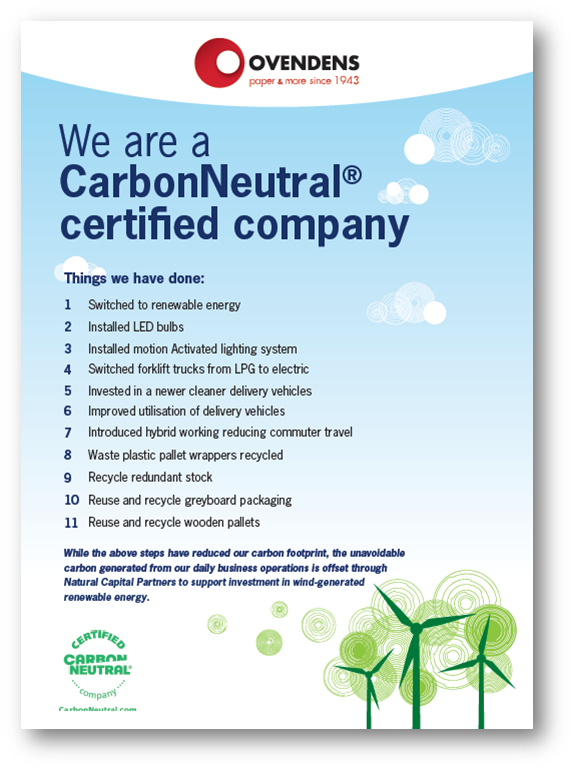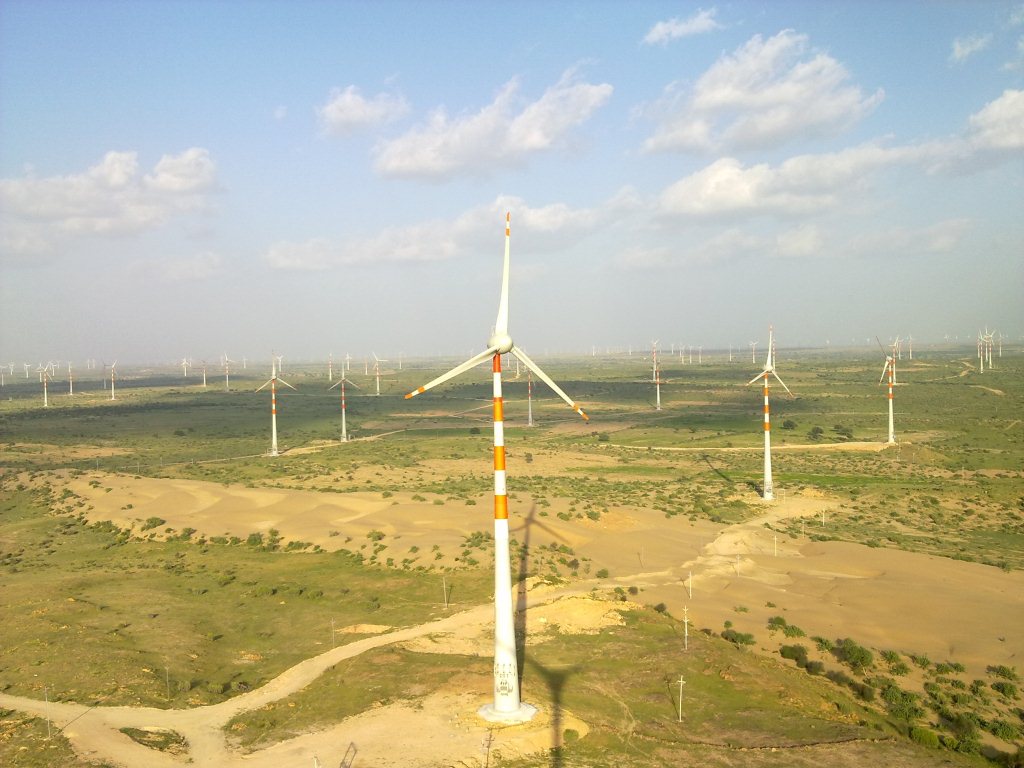CarbonNeutral® company
I am proud to announce that following a rigorous assessment process with independent third-party assessors, Turley, we have achieved CarbonNeutral® company certification through Climate Impact Partners.
As a company, we recognise that we all have a part to play in reducing the environmental impact of our business activity and while the paper industry as a whole is one of the most sustainable industries, there is always more we can do. Obtaining CarbonNeutral certification supports our carbon management strategy; to reduce our carbon footprint through implementing internal efficiency measures, external reductions through carbon offsetting and renewable energy sourcing.
Ovendens becomes a CarbonNeutral® Company
Ovendens has achieved carbon neutrality after calculating the carbon footprint of the business and reducing it to zero through a combination of in-house efficiency measures, sourcing renewable energy and supporting external emissions reduction projects.
The carbon footprint considers all the emissions produced by the day-to-day business operation, including:
-
-
- the emissions from the fleet of delivery vehicles;
- staff commuting to work;
- the premises occupied by the company;
- the waste generated; and
- all other aspects of operating a wholesale business.
-
Our certification has been awarded by an independent third-party providing transparent, third-party assurance of the climate action taken.
ovendens Carbon Neutral Certificate 2024
Steps taken to reduce our carbon footprint so far…

Support for external emission reduction projects
While the above steps have helped to reduce our carbon footprint, the remaining unavoidable carbon generated from our daily business operations has been offset through Natural Capital Partners to support investment in wind-generated renewable energy.
Click to see the Renewal Energy Portfolio

Onshore wind is the number one solution to combat climate change between 2020 and 2050 in a 1.5 degrees Celsius scenario.

